
Global Affairs
International Plant Protection Convention
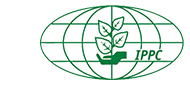 At global level, the International Plant Protection Convention (IPPC)
At global level, the International Plant Protection Convention (IPPC) ![]() is the main international agreement which provides a common and harmonized framework for plant protection activities that are carried out by National Plant Protection Organizations (NPPOs). More than 180 countries are Contracting Parties to the IPPC. The IPPC is a multilateral treaty overseen by the Food and Agriculture Organization (FAO). The IPPC aims to secure coordinated, effective action to prevent and control the introduction and spread of plant pests. The IPPC also extents beyond the protection of cultivated plants to the protection of natural flora and plant products. The IPPC Secretariat is based at the FAO headquarters in Rome, and is responsible for the coordination of the following core activities:
is the main international agreement which provides a common and harmonized framework for plant protection activities that are carried out by National Plant Protection Organizations (NPPOs). More than 180 countries are Contracting Parties to the IPPC. The IPPC is a multilateral treaty overseen by the Food and Agriculture Organization (FAO). The IPPC aims to secure coordinated, effective action to prevent and control the introduction and spread of plant pests. The IPPC also extents beyond the protection of cultivated plants to the protection of natural flora and plant products. The IPPC Secretariat is based at the FAO headquarters in Rome, and is responsible for the coordination of the following core activities:
- development of International Standards for Phytosanitary Measures (ISPMs)
- information exchange
- capacity development for the implementation of the IPPC and ISPMs
Although the IPPC was signed in 1951, it was only in the 1990s, following the international negotiations for trade liberalisation taking place at the WTO (Uruguay Round and developement of the Sanitary and Phytosanitary (SPS) Agreement), that global international standards on phytosanitary measures were considered necessary to avoid measures that would constitute unjustified barriers to trade. In 1992, the IPPC Secretariat was established at the FAO headquarters in Rome and began its international standard-setting program, which was adopted by FAO the following year. In 1993, the Committee of Experts on Phytosanitary Measures (CEPM), the body that became later the Standards Committee (SC) of the Commission on Phytosanitary Measures (CPM), was established with the objective of developing ISPMs. These Standards are subject to a process of consultation by all Contracting Parties of the Convention. ISPMs are also recognized by the WTO as the global standards for managing pest risks associated with trade.
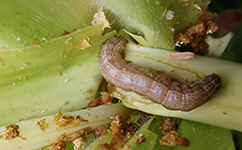
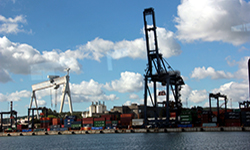
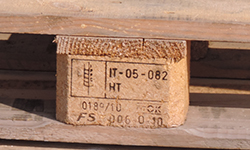

Regional Plant Protection Organizations
Article IX of the IPPC provides for the establishment of Regional Plant Protection Organizations (RPPOs). In that sense, EPPO is the RPPO for the Euro-Mediterranean region. In Article IX, it is stated that RPPOs shall:
- function as coordinating bodies in the areas covered by the IPPC (including information sharing)
- cooperate with the IPPC Secretariat in achieving the objectives of the IPPC (including the development of ISPMs)
- cooperate with other RPPOs and participate in the regular Technical Consultations for RPPOs that are convened by the IPPC Secretariat
At present, there are 10 RPPOs covering the different regions of the world. Each RPPO has its own independent statutes and conducts its own regional cooperation programme. RPPOs produce regional standards for their members. They cooperate with each other and with the IPPC Secretariat. In particular, they meet in Technical Consultations to promote the development and use of relevant ISPMs and to encourage inter-regional cooperation on phytosanitary measures for controlling quarantine pests and preventing their introduction and spread.
- Asia and Pacific Plant Protection Commission (APPPC)
- Caribbean Agricultural Health and Food Safety Agency (CAHFSA)
- Comunidad Andina (CAN)
- Comite de Sanidad Vegetal del Cono Sur (COSAVE)
- European and Mediterranean Plant Protection Organization (EPPO)
- Inter-African Phytosanitary Council (IAPSC)
- Near East Plant Protection Organization (NEPPO)
- North American Plant Protection Organization (NAPPO)
- Organismo Internacional Regional de Sanidad Agropecuaria (OIRSA)
- Pacific Plant Protection Organization (PPPO)
EPPO activities related to global affairs
In 1994, EPPO created a Panel on CEPM affairs (now called the EPPO Panel on Global Phytosanitary Affairs) which meets several times a year. The main tasks of this Panel are to circulate information and to develop harmonised views and positions among NPPOs of EPPO member countries on all matters relating to the IPPC, the Commission on Phytosanitary Measures (e.g. ISPMs), as well as relations with other RPPOs and other relevant international agreements such as the WTO Sanitary and Phytosanitary Agreement. Finally, EPPO actively participates in the IPPC regional workshops, and in the Technical Consultations among RPPOs that are convened by the IPPC Secretariat.
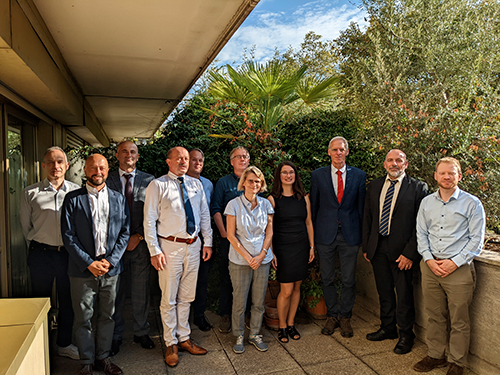
EPPO Panel on Global Phytosanitary Affairs (Paris, September 2022)
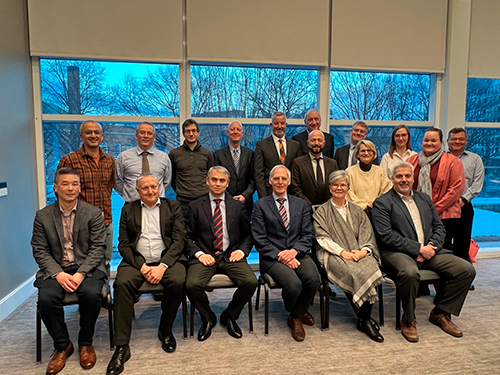
EPPO NAPPO Strategic engagement meeting (Washington DC, January 2024)
